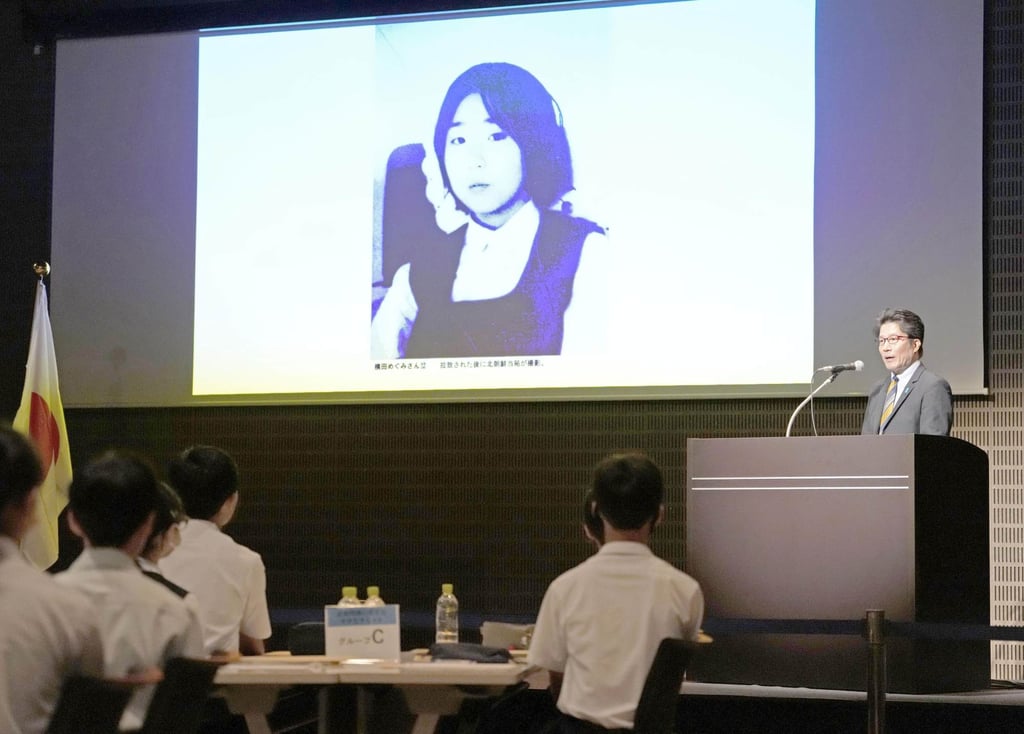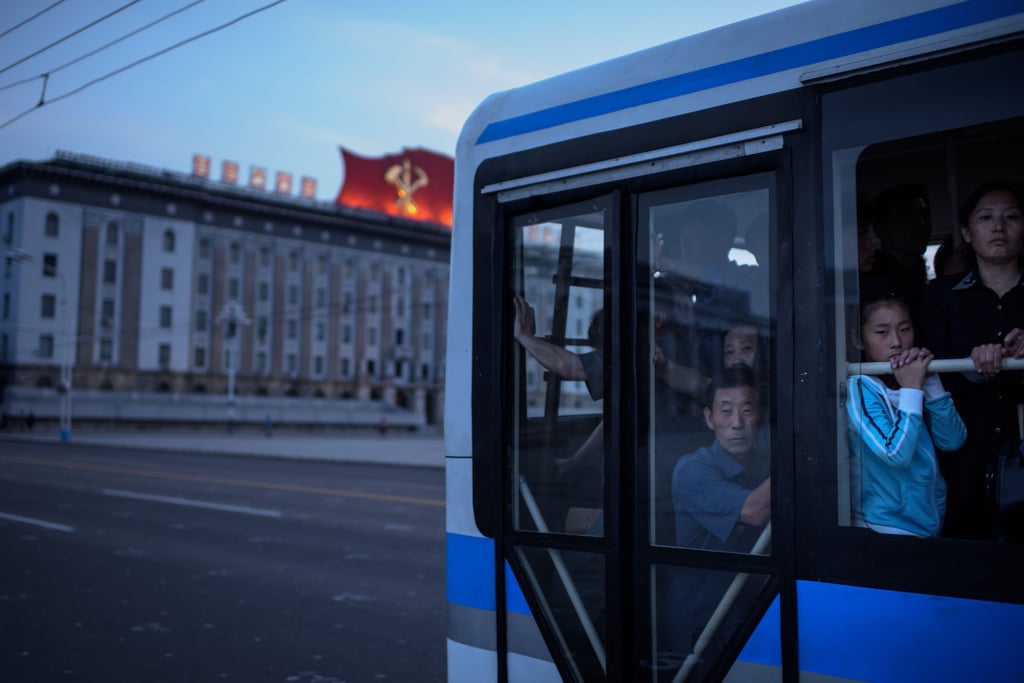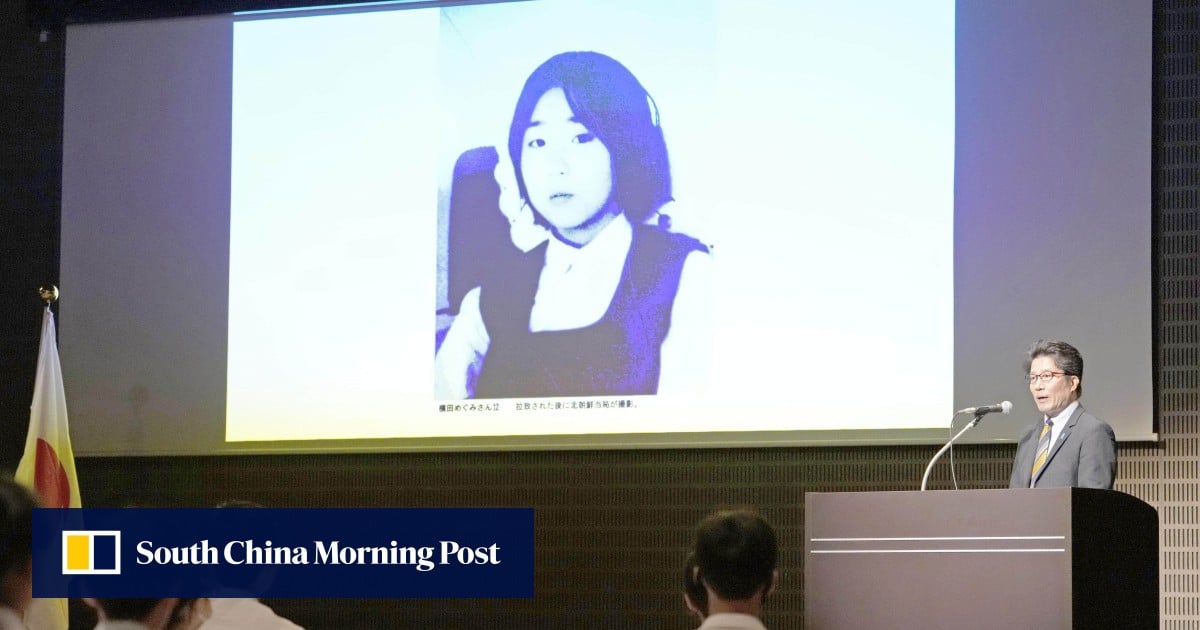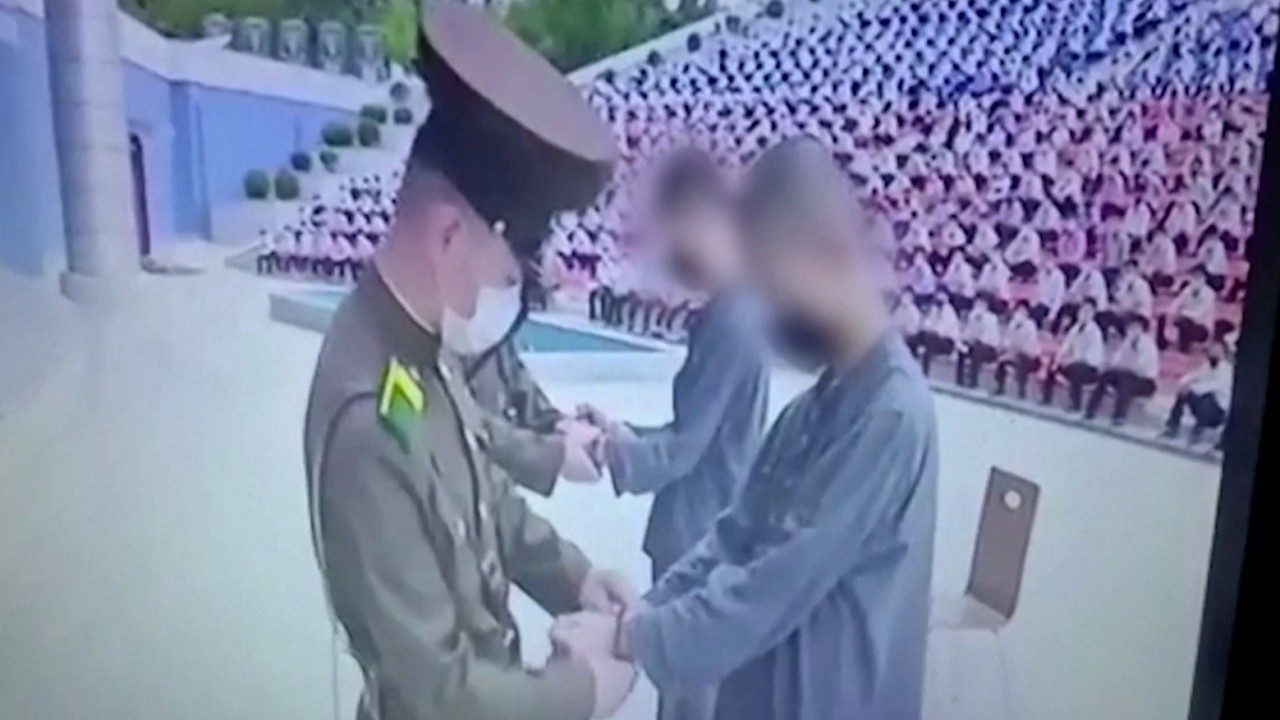“We have approached the government, too many times to count, to ask about progress on the abductees being able to return, but every time they say they are ‘doing their best’ or that they are ‘hopeful’ – but nothing is changing,” Yakabe told This Week in Asia.

Comjan hopes that by directly reaching North Koreans, they can uncover information that has eluded traditional diplomatic channels. The organisation has partnered Fighters for a Free North Korea, a group of defectors who have for several years been sending balloons and bottles across the demilitarised zone.
The memory sticks also contain details on how anyone in the North who can provide information about the missing individuals can claim a cash reward.
“We feel that many politicians are too pro-China and do not want to upset Beijing by pushing them to intervene with North Korea on this issue,” Yakabe said. “There is also talk about Japan reopening an embassy in Pyongyang, which means the government is not willing to take a firm position against the North.”
The families are now willing to take matters into their own hands and be more proactive in reaching out into the North, she said.
Balloons and bottles sent into the North by defectors have typically carried plastic bags containing basic medical supplies, small amounts of cash in US dollars and packages of seeds for planting.
The defectors’ group has included, in the memory sticks, South Korean feature films and television dramas as well as information critical of the North’s regime.
North Koreans are known to be avid consumers of information from beyond their nation’s closed borders, despite the high risk of watching foreign films.
In 2020, apparently alarmed at the increasing availability of illegally imported media and the negative impact it could have on the population, the North Korean government passed a new law with draconian penalties for anyone caught distributing or watching foreign programmes.
There have been sporadic reports from defectors that people caught watching foreign films – often teenagers curious about the rest of the world – were forced to undergo public show trials. The reports said anyone breaking the law is sent to a political prison camp, although there have also been suggestions that some underground distributors have been executed as a warning.
Comjan’s memory sticks contain the 2021 feature film The Pledge to Megumi about the November 1977 abduction of Megumi Yokota, 13, as she made her way home from school in Niigata Prefecture on the north coast of Japan.
The North Korean government admitted in 2002 that its agents had abducted Yokota to teach spies the Japanese language and customs before they were deployed to Japan. Pyongyang claimed, however, that she had committed suicide in March 1994 and returned what is said were her cremated remains. An analysis of the remains indicated that they were not those of Yokota.

The Japanese government recognises 17 nationals as having been abducted in the 1970s and 1980s, although Pyongyang has only admitted to abducting 13 people. Five abductees were permitted to return to Japan in 2004, but a sharp deterioration in bilateral ties in the years since then has meant there has been no subsequent progress on the issue.
Comjan believes that around 470 Japanese have been abducted, and that the government’s low figure stemmed from the high burden of evidence required to categorically link their disappearance to North Korea.
Toshimitsu Shigemura, a professor of international relations at Waseda University and an authority on North Korea, believes the impact of the data on the memory sticks will be limited.
“The people of North Korea have absolutely no power, so they can do nothing even if they have this information,” he said. “They are also busy trying to survive and are unlikely to think too much about Japanese abductees.
“The only impact these may have is that they could help to undermine the legitimacy and authority of the Kim regime, deepening ordinary people’s dislike of their leadership.”

Yakabe, however, is optimistic that a more direct approach could pay off over the longer term.
“We have been told that the memory sticks are already circulating underground in the North and that people are seeing the movie and the names and details of the missing Japanese,” she said. “Our aim is to send thousands of memory sticks for people there to see.”
Comjan hopes the images will jog ordinary North Koreans’ memories about Japanese abductees they may have seen. And while it might be extremely difficult to get information on a sighting out of the country, modern mobile telephones mean that such communications are not impossible – while the lure of a cash reward could be enough for some to try to pass on word of the whereabouts of missing Japanese.
“We are doing the best we can with what we have,” Yakabe said. “It may be difficult, but it is better to try.”


